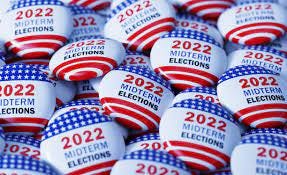Reflections on the midterm elections
Election integrity, cultural wars, and the economy
Conservative and liberal pundits have explained the results of the midterm elections by identifying advantages and disadvantages that each of the two parties had. Working against the Democrats was the economy and the radical cultural agenda of the party’s leftists. Working against the Republicans was the issue of abortion and the "election deniers" in the Party. Because of this balance of advantages and disadvantages, the expected red wave did not occur, and the results are mixed. The Democrats have retained their narrow hold of the Senate. The Republicans likely have retaken control of the House, but by a narrow margin, yet impressively winning by a 6% margin (52.3% vs. 46.2%) in House races across the country. Ron DeSantis had a strong victory in Florida, while Trump-endorsed candidates had mixed results, positioning DeSantis to challenge Trump in the 2024 Republican presidential primaries.
I propose in today’s commentary to reflect on the four issues at stake in th…


